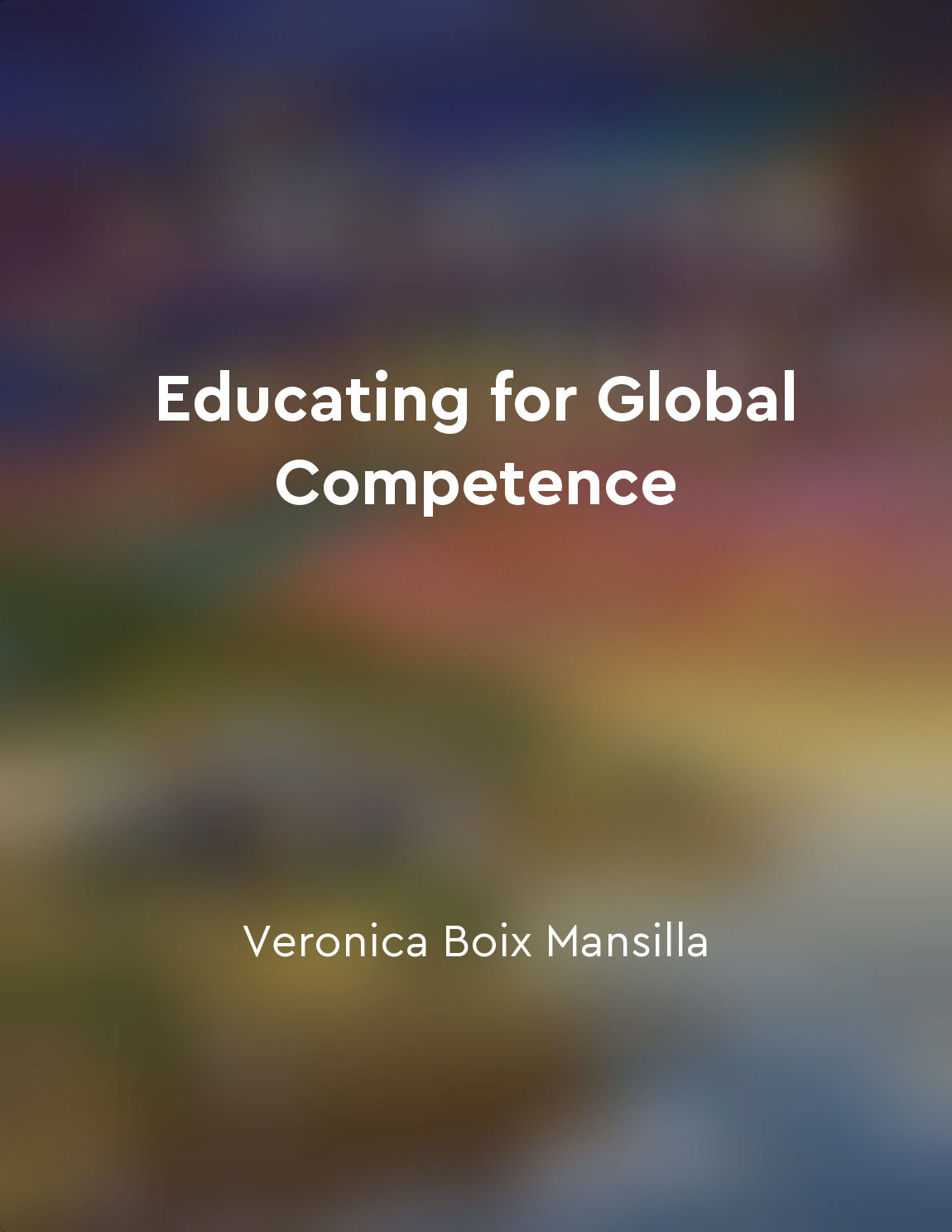Students must learn to work collaboratively with diverse groups from "summary" of Educating for Global Competence by Veronica Boix Mansilla,Anthony Wells Jackson
To thrive in our interconnected world, students must develop the ability to effectively collaborate with people from different backgrounds. This essential skill allows individuals to work together towards common goals, drawing on the unique perspectives and experiences that each person brings to the table. By engaging in collaborative efforts with diverse groups, students not only enhance their own learning but also contribute to the success of the team as a whole. Working with individuals from diverse backgrounds challenges students to think critically and creatively, as they navigate different perspectives and approaches to problem-solving. This exposure to a variety of viewpoints encourages students to question their own assumptions and biases, fostering a more open-minded and inclusive mindset. Through collaboration with diverse groups, students learn to appreciate the value of diversity and actively seek out opportunities to learn from others. Furthermore, working collaboratively with diverse groups helps students develop important communication and interpersonal skills. By interacting with individuals from different cultural, linguistic, and social backgrounds, students learn to adapt their communication style to effectively convey their ideas and understand the perspectives of others. This ability to communicate across differences is crucial in today's globalized world, where successful collaboration often requires navigating cultural nuances and breaking down language barriers. In addition to enhancing their communication skills, collaborating with diverse groups also helps students develop important social and emotional competencies. Working with individuals who have different experiences and perspectives can be challenging, requiring students to practice empathy, patience, and flexibility. Through these interactions, students learn to navigate conflicts, build trust, and cultivate positive relationships with others. These social and emotional competencies are essential for fostering strong interpersonal connections and building inclusive communities.- The ability to work collaboratively with diverse groups is a critical skill for students to develop as they prepare to navigate an increasingly interconnected and diverse world. By engaging in collaborative efforts with individuals from different backgrounds, students not only enhance their own learning and problem-solving skills but also contribute to the creation of more inclusive and equitable communities. Educators play a crucial role in supporting students in developing this essential skill, by providing opportunities for students to engage in collaborative projects with diverse groups and fostering a culture of respect, empathy, and open-mindedness in the classroom.
Similar Posts
Embrace failure as a stepping stone to success
Failure is not something to be feared, but rather embraced as a necessary part of the journey towards success. It is through ou...
Context is key in understanding behavior
Understanding behavior requires us to consider the context in which it occurs. Without taking into account the circumstances su...
Foster a culture of shared leadership through language
To create a culture of shared leadership, we must pay close attention to the language we use. Language is a powerful tool that ...
We are losing the diversity of ideas and perspectives in our communities
The Big Sort delves into the idea that our communities are becoming more homogenous in terms of political beliefs and values. A...
Synergize by leveraging the strengths of others
Synergy is a powerful concept that involves combining the strengths of multiple individuals to achieve results that are greater...
Writing can be a form of selfexpression and empowerment
Writing has the power to unlock the deepest parts of ourselves and bring our thoughts and feelings to the surface. By putting p...

Nonverbal communication can convey powerful messages
Nonverbal communication is a form of communication that does not involve the use of words. It includes facial expressions, body...
Authenticity fosters trust and connection
Being authentic means being true to ourselves, showing others who we truly are without any pretense or facade. When we are auth...

Recognize the impact of nonverbal communication cues
Nonverbal communication cues play a significant role in how we interact and connect with others. These cues can include facial ...
Manage emotions effectively
Managing emotions effectively is a crucial aspect of conflict resolution. When faced with a conflict, our emotions can often cl...


